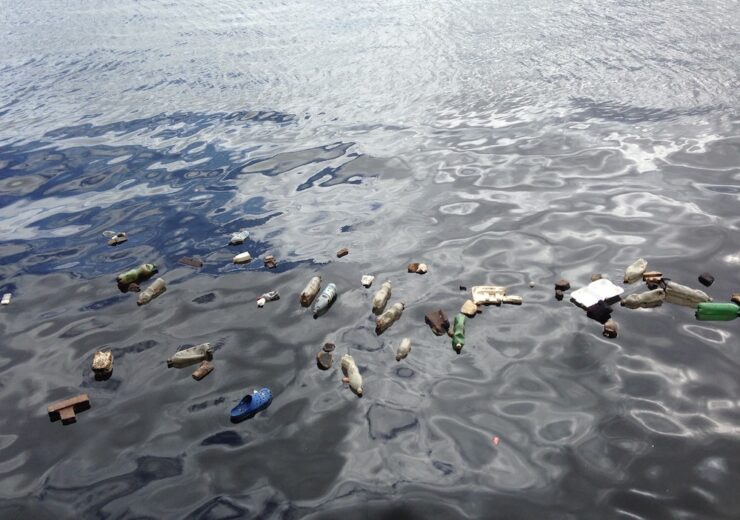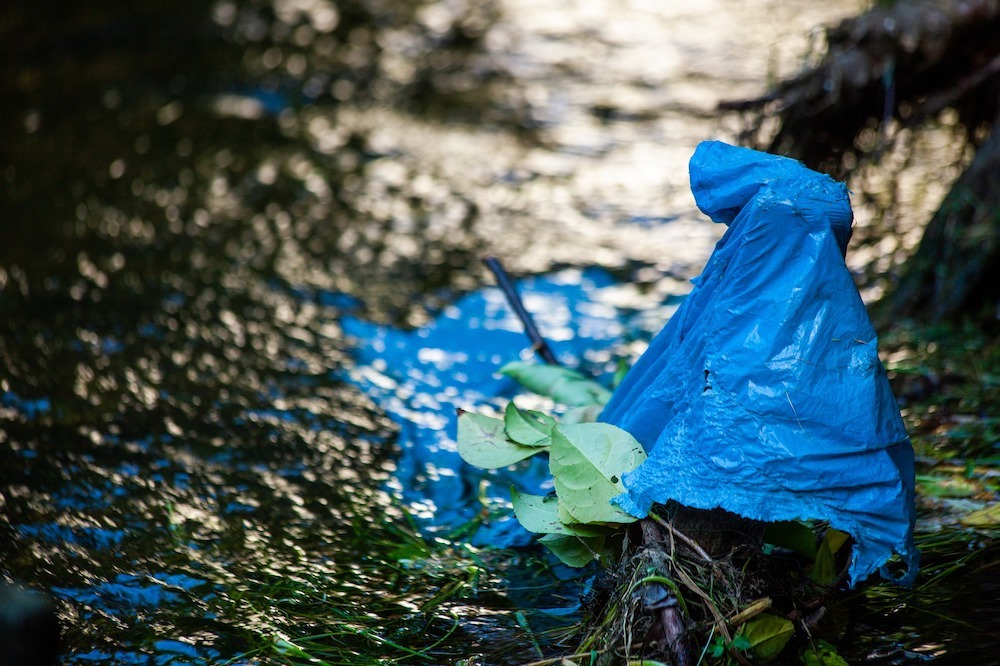The study also estimated that the amount of plastic pollution reaching the ocean will peak in 2029, hitting more than 860,000 metric tonnes by 2052

The study focused on floating plastic in the ocean (Credit: Pixabay)
Surface-level clean-up devices won’t solve the ocean plastic pollution problem, according to a new study.
Researchers compared estimates of current and future plastic waste with the capacity floating clean up devices have to collect it, finding their impact was “very modest”.
The study — by the University of Exeter, the Leibniz Centre for Tropical Marine Research, the Leibniz Institute for Zoo and Wildlife Research, Jacobs University, and charity Making Oceans Plastic Free — focused on floating plastic, as submerged waste is difficult or impossible to remove.
It did, however, find that river barriers could be more effective, which would reduce ocean plastic pollution “significantly” if used in tandem with surface clean-up technology.
Dr Jesse Abrams, from the University of Exeter’s Global Systems Institute and the Institute for Data Science and Artificial Intelligence, said: “The important message of this paper is that we can’t keep polluting the oceans and hoping that technology will tidy up the mess.
“Even if we could collect all the plastic in the oceans — which we can’t — it’s really difficult to recycle, especially if plastic fragments have floated for a long time and been degraded or bio-fouled.
“The other major solutions are to bury or burn it — but burying could contaminate the ground and burning leads to extra CO2 emissions to the atmosphere.”
Amount of plastic pollution reaching the ocean to ‘peak in 2029’
The authors of the study— published in the Science of the Total Environment journal — also estimate the amount of plastic pollution reaching the ocean will peak in 2029.
Alongside this, they believe that surface plastic will hit more than 860,000 metric tonnes — more than double the current prediction of 399,000 — by 2052, when previous research suggested the rate of plastic pollution reaching the ocean may finally reach zero.
In recent years, initiatives have been set up to collect plastic waste entering the oceans and rivers have gained a lot of attention.

One such scheme aims to clean the “Pacific garbage patch” in the next 20 years using 600 metre-long floating barriers to collect plastic for recycling or incineration on land.
The study assessed the impact of deploying up to 200 of these devices running without downtime for 130 years from 2020 to 2150.
In this scenario, global floating plastic debris would be reduced by 44,900 metrics tonnes — just over 5% of the estimated global total at the end of that period.
The Leibniz Centre for Tropical Marine Research’s Dr Sönke Hohn said: “The projected impact of both single and multiple clean-up devices is very modest compared to the amount of plastic that is constantly entering the ocean.
“These devices are also relatively expensive to make and maintain per unit of plastic removed.”
Reducing disposal and increasing recycling rates essential tackle ocean waste, says study
The study’s authors say a “complete halt” of plastic waste from rivers entering the ocean via river barriers — especially in key polluting rivers — could prevent most of the pollution they otherwise predict over the next three decades.
Due to the importance of large rivers for global shipping however, such barriers are unlikely to be installed on such a large scale.
The study also says that, given the difficulty of recycling and the negative impacts of burying or burning plastic, reducing disposal and increasing recycling rates are essential to tackle ocean plastic.

Professor Agostino Merico, from the Leibniz Centre for Tropical Marine Research and Jacobs University, said: “Plastic is an extremely versatile material with a wide range of consumer and industrial applications, but we need to look for more sustainable alternatives and rethink the way we produce, consume and dispose of plastic.”
Non-profit Making Oceans Plastic Free co-founder and author on the study Dr Roger Spranz added: “We have developed expertise in changing behaviour to break plastic habits and stop plastic pollution at its source.
“Working with local partners, the implementation of our Tasini campaign in Indonesia has to date helped to prevent an estimated 20 million plastic bags and 50,000 plastic bottles from ending up in coastal areas and the ocean.”
